$22.00 – $120.00
The return of a cult classic, Zhangjiawan is reliable decadence for the senses.
Not to be unceremoniously poured off, intaking the rinse gives us a prelude of camphor, saltwater taffy, oven pastry, alpine moss, and sweet corn. An elegant example of greater Yiwu area ancient tree raw pu'er: throughout the session the tea consistently stays mellow and soft, yet not collapsed; the structure stays intact, playfully buoyant, pliable and responsive to intensity of brewing technique.
张家湾 Zhāngjiāwān is a small village in Mengla county in Xishuangbanna, about an hour's drive north of Yiwu township, just above Bohetang and Yishanmo village. It sits at about 1400 meters in elevation, an hour's walk from the Chinese-Lao border, with brick-red soil, supporting tea gardens predominantly of old-growth 3-5 meters tall. This village of 50 households is known as one of the entrances to the 易武原始森林 Yiwu primeval forest, and is surrounded by this state-owned wilderness. Achieving fame in the old days of pu'er before the Sino-Japanese war, Zhangjiawan was the first stop for the tea-horse road caravans hailing from any of the original six great tea mountains that were to head to Vietnam.
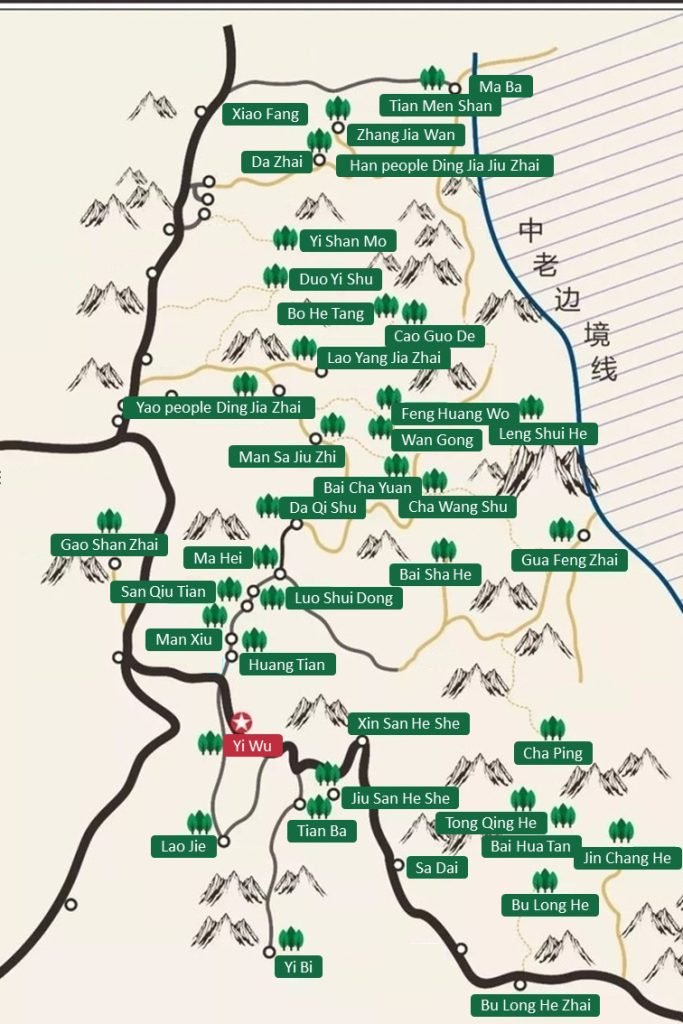
Zhangjiawan's about 3 miles from the Laos border and is represented at the top of this map
The Tale of the Fire Garden
Before meeting the Hé family's Zhangjiawan factory manager, Long Fa, Zhangjiawan's Fire Garden tea remained much more of a mystery. All we knew was that for some reason, these ancient gardens were burned down to the ground, yet those with deep enough roots prevailed; coppiced and maimed but not dead. When did this happen? Why did this happen? Like a cold case, this story gave us more questions than answers.
As a local, Long Fa was able to give us a bit more insight.
Around the time of the Qing Dynasty's end, over 100 years ago, as these caravans of farmers and merchants congregated in the relay station of Zhangjiawan on their journey east, disputes over coveted resources sometimes broke out amongst competing factions. Zhangjiawan may have been just another small village with old trees, but as the bottleneck that caught the eye of all of the passing-through enterprising teamen spanning across the Six Great Tea Mountains, bones could get picked over who controlled which resources. Long Fa and other locals believe that due to the jealousy and resentment, a tea merchant took to burning down the most coveted tracts of ancient tea arbors one night out of spite and retaliation. The trees with the most established root systems slowly resurrected themselves from the dead, and now comprise what is now referred to as the 火烧茶园 Fire Garden.
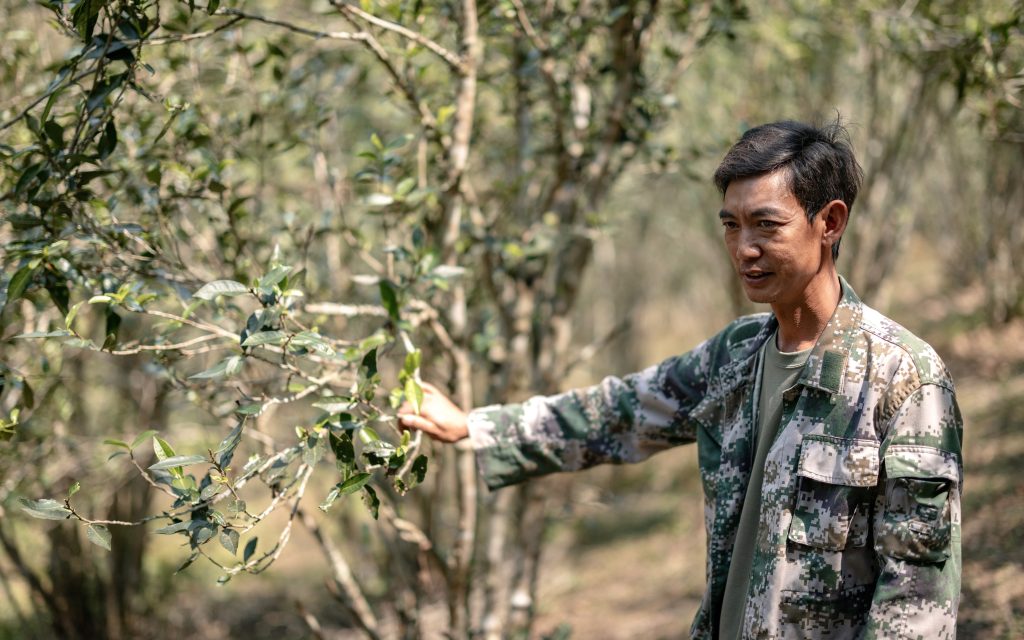
Long Fa tells the story in the Fire Garden
After a grueling hour-long car ride up a dusty mountain road that felt more like a boulderfield on our skeletons, we spilled out of Long Fa's old truck. We had finally arrived. A mountainside thicket of ancient tea trees with spindly branches seemingly sprouting out of the ground, this wasn't the typical feel of an ancient arbor. After the fire razed the trees down to the ground, the regrowth sprouted from a singular base, yet with many sprouts they grew taller and thicker as separate boughs emerging from this base, creating an entirely different growth pattern.
The amazing thing was that many of the bases from which these slender boughs emerged, in terms of girth their trunk bases are exceptionally large. As carbon dating would be out of the question for many ancient tea trees, measuring the trunk diameter has become another metric of gauging a tree's age. And while we didn't bring a measuring string to the Fire Garden, the massive width of these trunk bases begs the question, just how old are these wily old trees that continue to thrive against the odds all these years? We can only listen to the tea for more answers.
This year's cake wrapper artwork theme, Water Creatures of the Mekong, feature fish and mammals that call the Mekong River (the part that runs through Yunnan is referred to as the Lancang River) home. A hand-inked drawing by Rosy Kirby of Lost Mountain Prints of one of these creatures grace the front of each cake, and this year's Zhangjiawan tea features Smooth Coated Otter Lutrogale perspicillata.
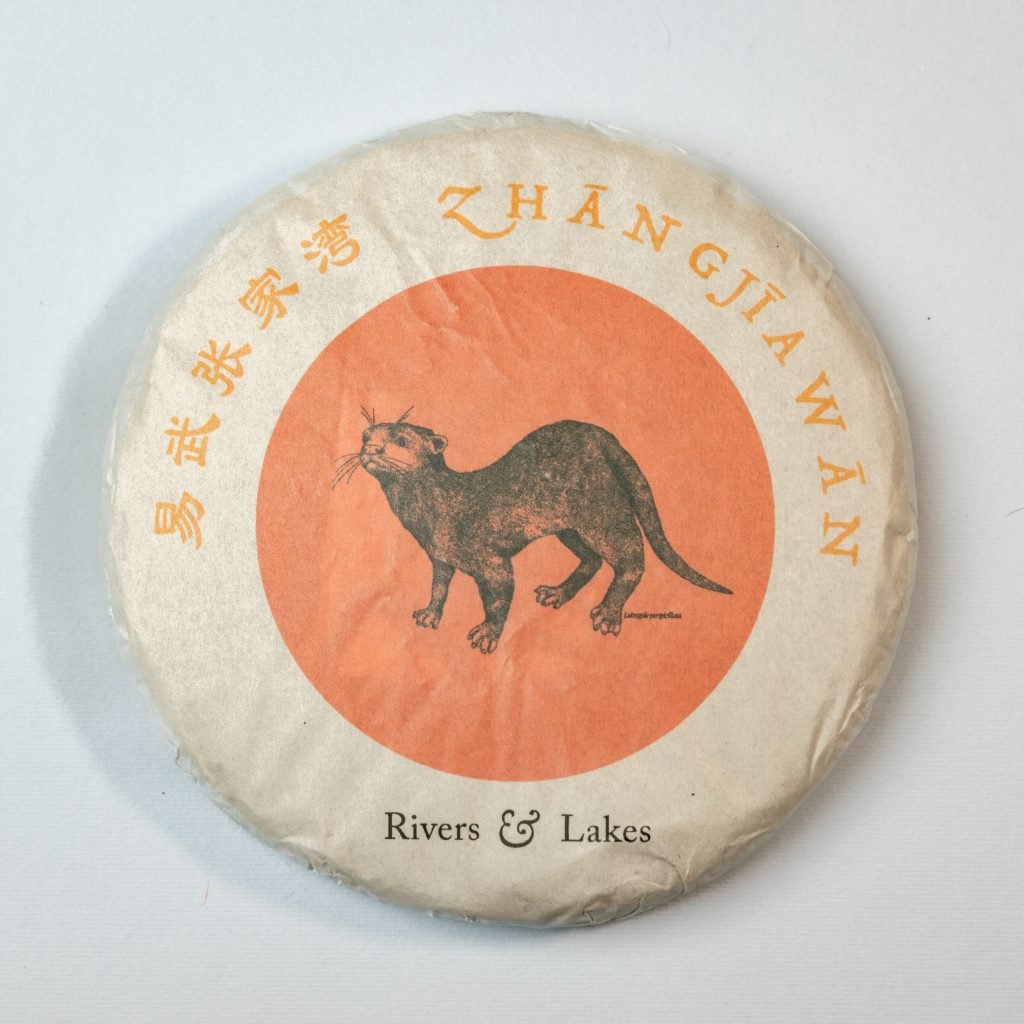
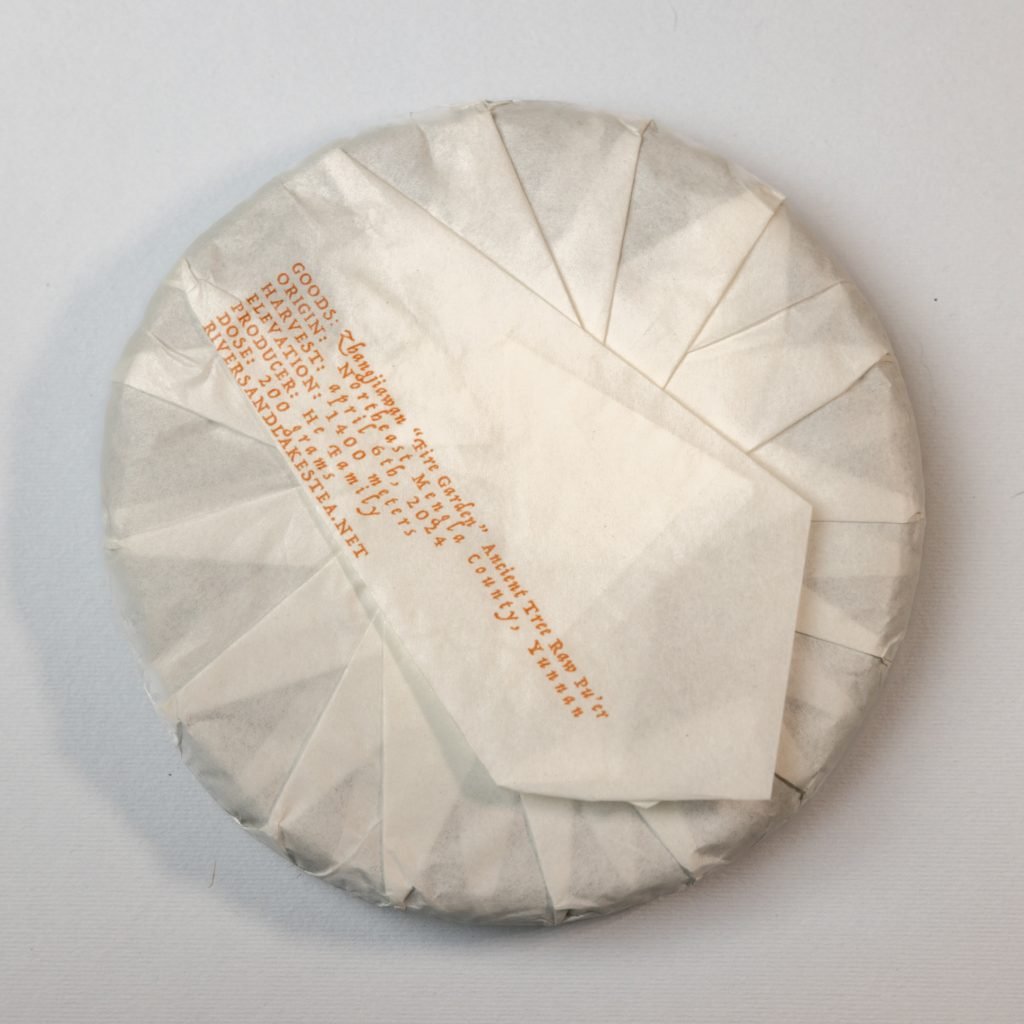
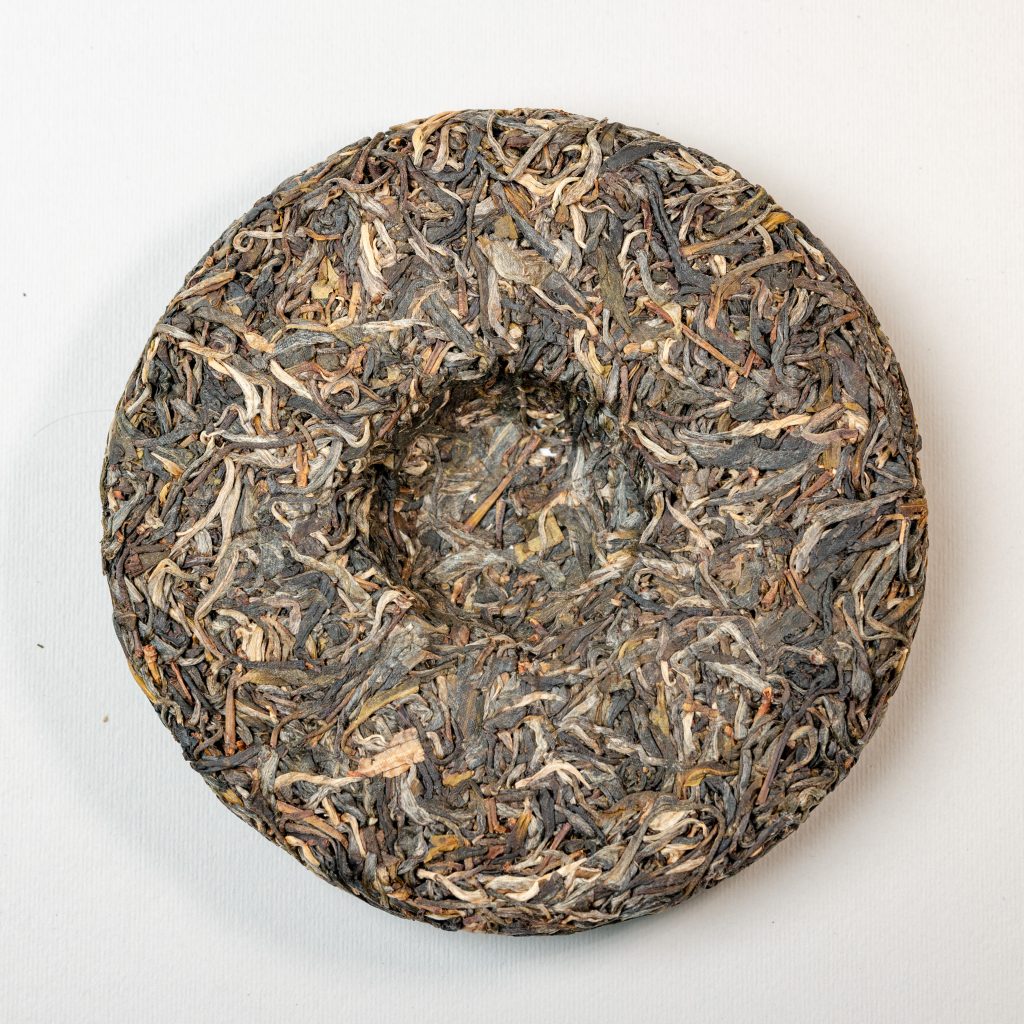
Beautiful, subtle and wonderful lingering aftertaste. The mystery of it draws me deeper.